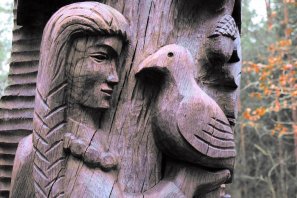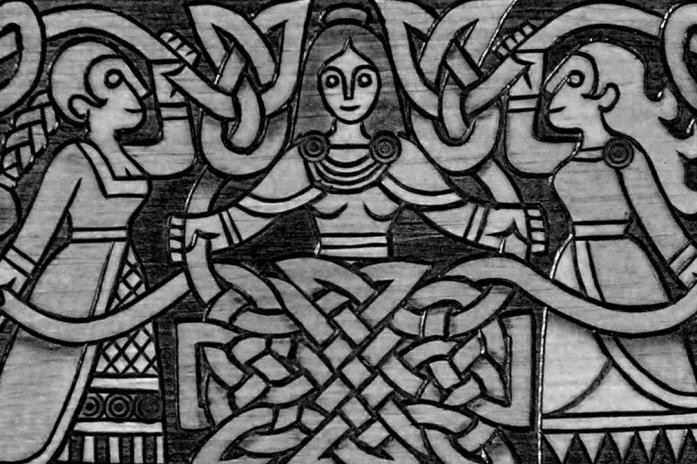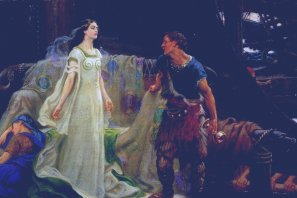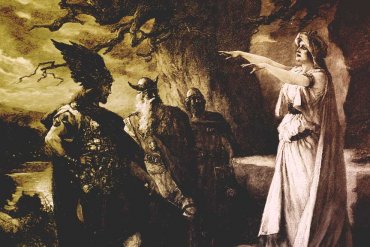John Kenny ‘s fascinating CD “Dragon Voices.Around 1990, John Purser – composer, musicologist, poet, playwright, broadcaster and passionate scholar of Scotland’s music – initiated a project to reconstruct the so-called Deskford carnyx, which was discovered in a peat bog at Leitchestown farm in Deskford, in the former Scottish county of Banffshire, in 1816. Only the boar’s-head bell survives, apparently placed...
This book should be seen as a nuanced representation of the relationship between folklore studies and a socialist-totalitarian state, based on some of the significant issues in the history of folklore studies in the three countries of Estonia, Latvia, and Lithuania, often referred to as “the Baltic countries.” This is not a complete and comprehensive history of folkloristics in the...
The nornir or norns were a group of female supernatural beings closely related to ideas about fate in Old Norse tradition. Karen Bek-Pedersen provides a thorough understanding of the role played by norns and other beings like them in the relevant sources. Although they are well known, even to people who have only a superficial knowledge of Old Norse mythology, this is the first detailed discussion of the norns to be published amongst the literature dealing with Old Norse beliefs. […]...
Midsummer, the Summer Solstice is one of two yearly solstices, the other being the Winter Solstice, at the opposite end of the year. Technically, the solstice itself falls at the exact moment that Earth’s semi-axis is most inclined toward the sun, which occurs twice a year. So in the Northern Hemisphere, the Summer Solstice occurs in June, and the Winter...
Francis Bacon was a great genius who helped to shape the modern world. But many people would be hard put to say exactly why. He made no new discoveries, developed no technical innovations, uncovered no previously hidden laws of nature. His achievement was to offer an eloquent account of a philosophy and a method for doing those things. And in...
Tertön Sogyal’s story. In the mid-19th century, the life of a horse-riding bandit in the eastern Tibetan region of Kham took a drastic turn that would alter the future of Tibetan Buddhism. After the young man rejected his father’s demands to lead a life that was harming others, he placed his trust in wise hermits and learned monks who nurtured his spiritual development in remote caves and sacred temples. As his mind turned away from worldly pursuits and toward the […]...
Intimacy. In our culture, there is an excessive concentration on the notion of relationship. People talk incessantly about relationships. It is a constant theme on television, film, and in the media. Technology and media are not uniting the world. They pretend to provide a world that is internetted, but in reality, all they deliver is a simulated world of shadows....
Who’s Odin? To find Odin’s origins, how far back must we go? Although the most likely explanation for Snorri’s attempts to connect the Æsir with Troy is medieval literary fashion, it is tempting to see a possible source in folk memories of the migration of the Yamnaya culture from the steppes of the Caucasus and Urals into northern Europe four...
Hamingja, as used in the sagas, stands for an abstract conception, that of something belonging to an outstanding person which is partly a matter of character and partly of personality, and partly something more than either—that strange quality of ‘luck’ or luck-lessness’ which attaches itself to certain individuals more than others. It is something which can be handed on after death, and it usually remains within one family. It is usually connected with the name, so that if a child […]...
Valkyrie which is composed of two words: the noun valr (referring to the slain on the battlefield) and the verb kjósa (meaning “to choose”). Together, they mean ‘chooser of the slain’. The Old Norse valkyrja is cognate to Old English wælcyrge. A malevolent female demon, a sorceress or a female witch. Among the Anglo-Saxons the valkyries were female spirits of...
Tacitus gives us some fascinating details in Books 7 and 8 of his Germania, written in about 98 CE, relating to the role of German women in war and battle. He points out that a major contribution to German military success lay in the fact that their fighting units were not made up of warriors randomly formed into motly crews....
Poetry, in our time, is not only a misunderstood art, but one that has been subject to a systematic program of denaturing and falsification, at the hands of those Andrew Harvey has characterized as “official tastemakers who have outlawed the sublime, and… a contemporary poetry world addicted to cheap irony, unearned despair, bizarre pastiche, narcissistic confessionalism, and blindingly boring baroque word games” In earlier ages, among many peoples, poets were the repositories of the total knowledge of their nation or […]...













